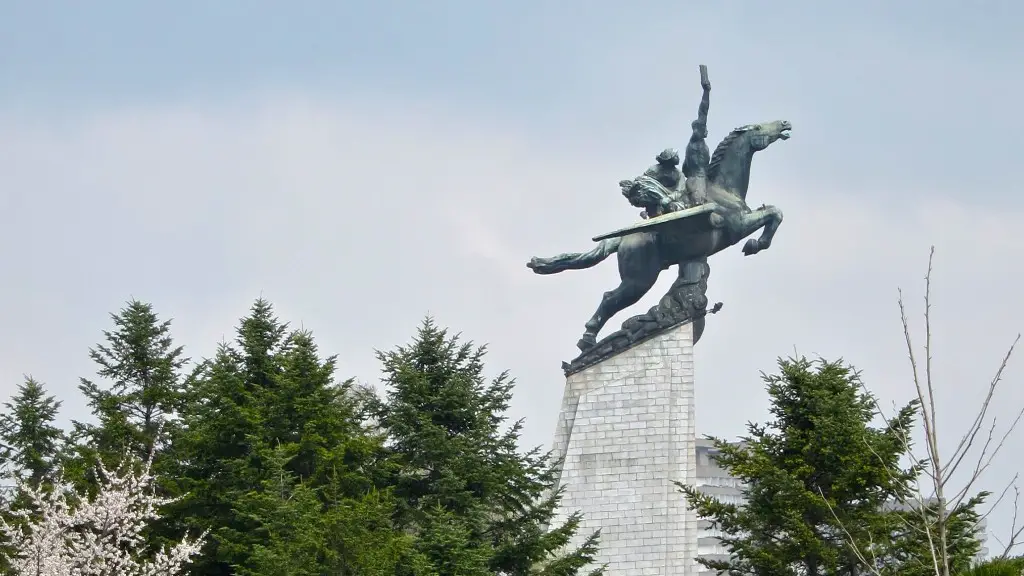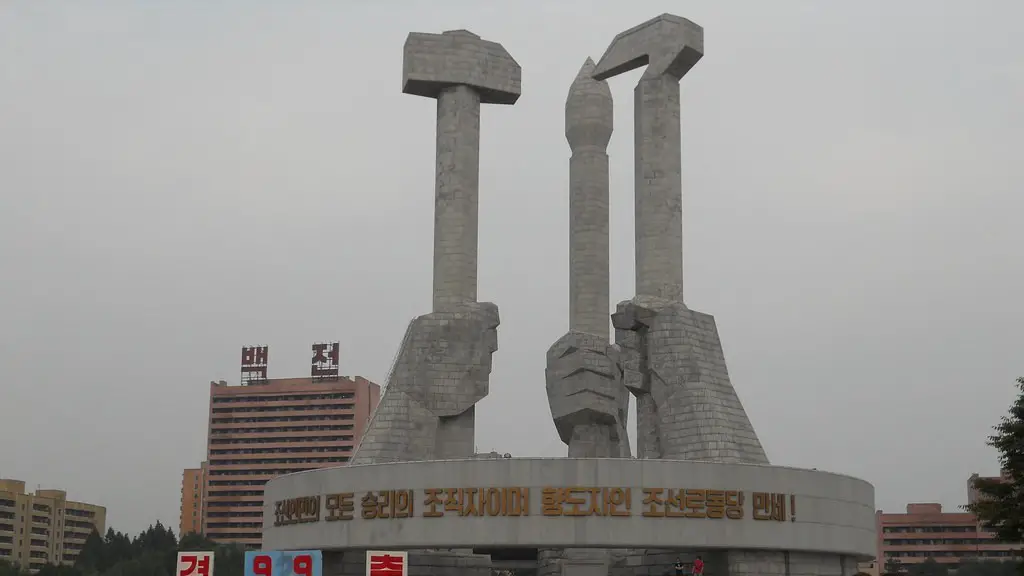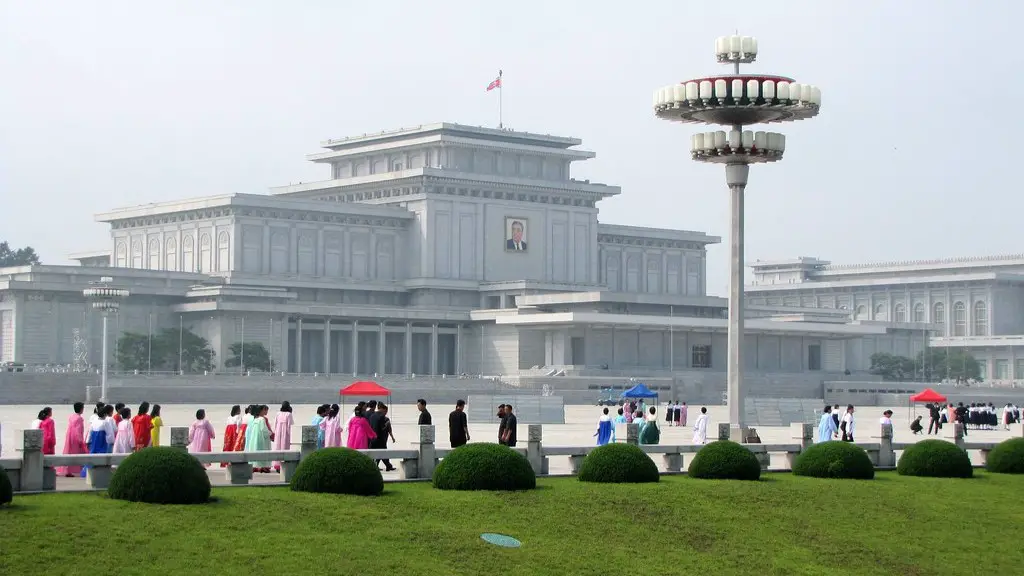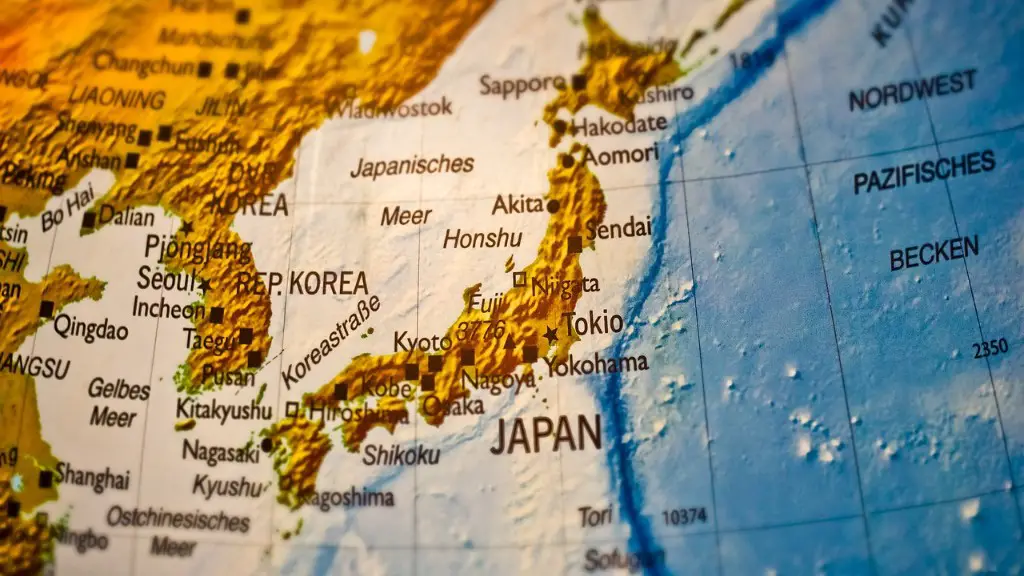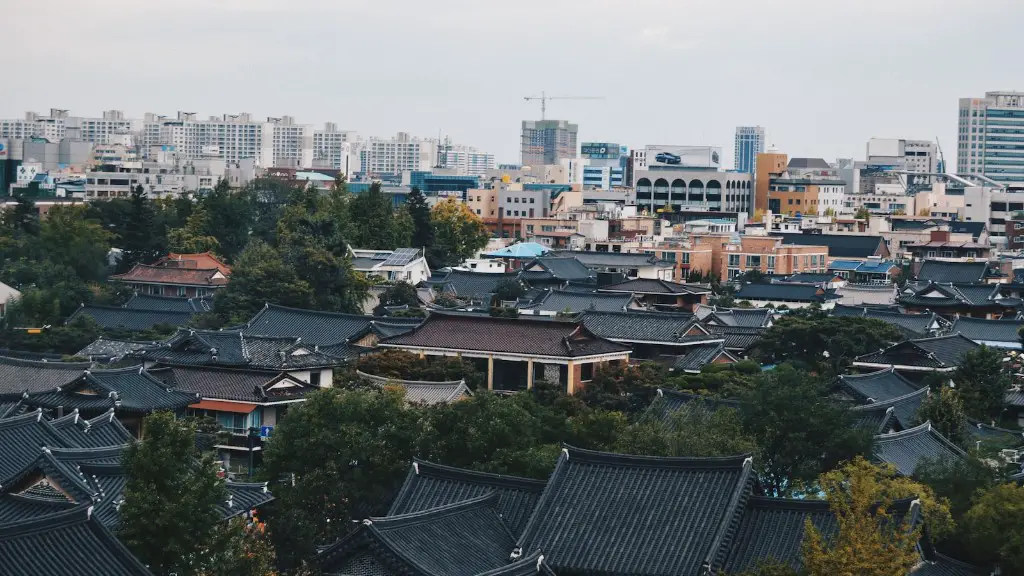History of North Korea
North Korea is situated in the northeastern part of Asia and is one of the most repressive and isolated countries in the world. North Korea has been ruled by the same regime since its establishment in 1948. The regime is characterized by severe political repression and human rights violations, as well as an extreme cult of personality. Under this regime, the government has established a network of concentration camps, known as kwalliso. These camps are used to detain individuals who are suspected of opposing the government or engaging in crime or other forms of “anti-socialist” behavior.
The North Korean government has used the camps as a tool to political oppression since their inception in the 1950s. However, their use had increased significantly during the rule of current leader, Kim Jong-un. According to a report by the United Nations Special Rapporteur in 2014, upwards of 120,000 people are currently detained in such camps.
Reasons For Concentration Camps
One reason for the existence of the camps is to maintain the loyalty and obedience of North Koreans to the regime. Through fear and intimidation, the camps have been used to suppress dissent and to maintain control over the population. The government has also been known to use them as a tool of punishment for those who committed political or religious offences, or even to punish those who were related to those deemed guilty of them, as well as those who were suspected of engaging in anti-government activities.
The North Korean government has also reportedly used the camps to hold members of rival political groups, or even those who are simply viewed as too outspoken or independent-minded. The camps also reportedly hold those who are deemed to be of “low moral character”, such as prostitutes and still others who are not exactly criminals but may pose a perceived threat to the regime.
In some cases, the camps have been used to forcibly separate families. While many individuals in the camps are eventually released and allowed to return to their families, those accused of “antiparty activities” or “ideological and political crimes” may not be reunited with their family members.
Conditions In The Camps
The conditions in the camps are described as being harrowing, with reports of torture, starvation, and other forms of cruelty. Food and water are scarce, and inmates are required to spend most of their days performing hard labor. There have even been reports of executions of inmates in some of the camps.
The camps often lack proper medical facilities and inmates are forced to provide medical care for each other in tremendous adversity. Children born in the camps are often declared stateless and are deprived of rights, while those held there are denied access to family members, or even the outside world.
The lack of human rights in the camps is widespread and systemic. Reports indicate that inmates are often subject to beatings and humiliation, and are regularly subjected to harsh interrogations. Inmates are also denied access to basic legal rights, such as the right to a fair trial, or access to adequate medical care.
International Reactions
International outcry over the concentration camps in North Korea has grown in recent years. In a report by the United Nations Human Rights Council in 2014, the government was accused of “systematic, widespread and grave violations” of human rights. The report also called on the North Korean government to close the camps and release all those held in them.
The United States has also condemned North Korea’s treatment of prisoners in the camps and has called for their closure. In response, the North Korean government has denied the existence of the camps and has accused the U.S. of fabricating stories about the camps to discredit its government.
Despite the international outcry, the camps remain open and the human rights violations continue. In 2018, a report from Amnesty International found that conditions in the camps remained dire, with many prisoners facing “inhumane and degrading treatment” and a lack of adequate medical care.
How Does North Korea Benefit From Having Camps
Despite the commonly accepted view of concentration camps as a tool of repression, the North Korean government also stands to gain from the existence of such camps. For example, camps are used to relocate individuals who are seen as potential political opponents or dissidents and prevent them from communicating with the outside world. Furthermore, camps are used to isolate those who are perceived as a threat, to control their access to resources and prevent them from mobilizing politically.
The government has also used the camps to facilitate economic gains, such as by appointing inmates to positions in state-owned enterprises and factory camps, where they are forced to work as virtual slave labor.
Another benefit for the government is that it can use the camps to hide information about human rights violations by holding prisoners indefinitely in solitary confinement. This allows the government to control the flow of information and prevent international organizations from gaining access to them.
Finally, the existence of the camps also serves as a tool for political leverage. The government can use the camps to demonstrate its commitment to its own objectives. For example, in the past, Pyongyang has used the camps as a “bargaining chip”, to gain concessions from the international community on issues such as nuclear disarmament.
Examples of Camps Around The World
North Korea’s concentration camps are not the only such camps in existence. Similar camps are known to exist in several countries, such as Burma, Syria, and the Democratic Republic of Congo. These camps are used to detain individuals or groups who are perceived by their governments as political opponents, or even those who are simply seen as inconvenient.
In some cases, these camps are used to imprison individuals without trial or due process, and conditions in the camps have been reported to be similar to those in North Korea. Even some Western democracies have established detention camps for suspected terrorists and other security threats.
It is important to bear in mind that these camps exist in all kinds of contexts, for all kinds of reasons. While the North Korean camps are particularly egregious in the scope of their human rights violations, it is important to recognize that such camps exist in many parts of the world. It is also important to understand that these camps serve various goals, both physical and psychological.
Alternatives to Concentration Camps
The international community has called on North Korea to close its concentration camps and to ensure that those held in the camps are guaranteed basic human rights. However, it is important to recognize that simply closing the camps would not address the underlying issues that are causing the camps to exist in the first place.
One way to address these issues is to ensure that the North Korean government is held accountable for its actions. This can be done through diplomatic engagement and increased international pressure. Such pressure could include the imposition of economic sanctions, or the revocation of diplomatic ties.
Another way to address the issue is to support programs that provide services and assistance to those who have been displaced or persecuted by the camps. Such programs could focus on providing medical care, legal aid, and psychological support to former inmates.
Finally, it is important to recognize the need for international cooperation to ensure that those who have been persecuted in the camps receive the justice and recognition that they deserve. Nations should pledge to join forces to ensure that those responsible for human rights violations are held accountable and that the use of concentration camps is abolished around the world.
